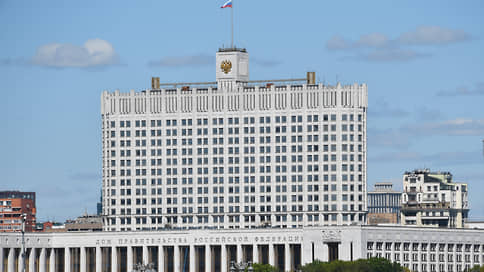The government expects to extend its anti-crisis powers until 2024
[ad_1]

The government expects to extend its anti-crisis powers until 2024, which are necessary to adapt the Russian economy to sanctions. The authorities explain the need to maintain special regulation by the needs of business – a flexible approach allows the government to adapt the control and supervisory burden on companies, regulate the flow of parallel imports and cancel mandatory disclosure of reports by companies. It is proposed to maintain a special regime for government procurement from a single supplier, but these measures have already attracted criticism from the FAS and market participants.
According to Kommersant, the White House intends to extend anti-crisis regulation in the economy until 2024 – a bill on this has been prepared by the Ministry of Economy (Kommersant has the document). Let us recall that the special measures were formalized as legal norms regarding a moratorium on fines for currency violations; they also assumed the ability of the government to introduce certain forms of support by separate decisions – from simplifying the receipt of government services to the procurement of medicines. The government mastered the practice of such special powers back in 2020 – a flexible approach allows the government to adapt regulation to rapidly changing conditions.
In the explanatory note to the bill, the need to maintain special regulation is explained by law enforcement practice and business requests.
However, only some of the measures are subject to extension. Thus, it was decided to abandon special measures in the field of urban planning – in particular, the government’s powers to issue permits for the construction of capital construction projects and extend the validity of territory planning documentation and urban plans.
A large block of special measures concerns corporate governance. They largely implied limiting the influence of foreign participants on the activities of Russian companies. Thus, we are talking about the suspension of the rights of foreign participants in companies (the extension is explained by problems in the oil and gas sector), about maintaining access to company information only for shareholders with a stake of more than 5% (with a general regime of 1%), about the possibility of issuing bonds without registering a prospectus . “Subject to sanctions” companies do not have to form a board of directors, transferring its functions to the executive body.
Another block is the preservation of a special government procurement regime.
In particular, it is proposed to retain the ability to change the essential terms of contracts for the supply of medicines, as well as in the field of defense and security, since prices for purchased goods often change. Also, in the event of force majeure, the parties will be able to change the essential terms of the contract if there is a government decision, and the government will be able to determine cases of adjustment of the essential terms for construction contracts concluded for less than a year. Customers still have the opportunity to make bulk purchases from a single supplier – the government and regions can now independently determine the cases of such purchases. It is assumed that purchasing from a single supplier is more reliable in the face of sanctions and the risk of chain breaks. However, as the FAS previously noted, in practice such purchases are not always justified – at the same time, rules on a single supplier reshape markets and carry risks for competition, since many counterparties cannot access procurement (see “Kommersant” dated September 23, 2022).
The government expects to retain its temporary powers in determining the specifics of regulating labor relations, paying pensions and social payments, and insurance against industrial accidents. In the field of industry and trade, the government will be able to determine the specifics of changing and terminating special investment contracts (due to sanctions, not all investors can or want to fulfill obligations) and adjust the list of goods for parallel imports.
The White House will also be able to determine the specifics in the field of control, supervision and licensing activities. In addition, the government will continue to determine the need for mandatory publication of financial and non-financial reporting by companies. Thus, last week the government approved Resolution No. 1490, which provides for the possibility of not disclosing all information as part of consolidated reporting – this reduces the sanctions risks of companies, but limits the possibilities of attracting private capital.
[ad_2]
Source link






